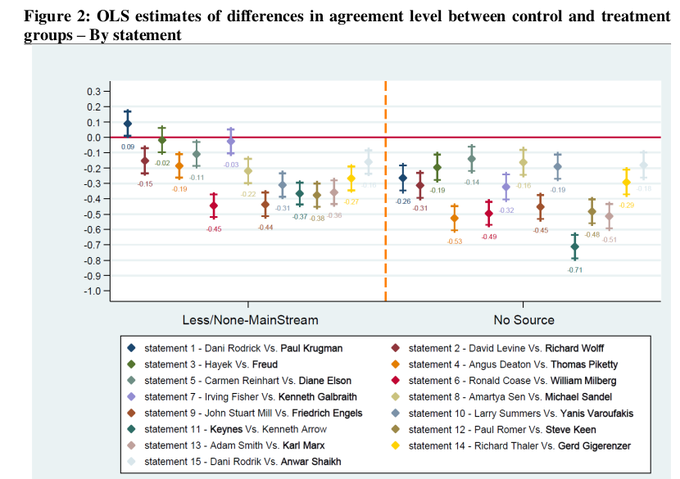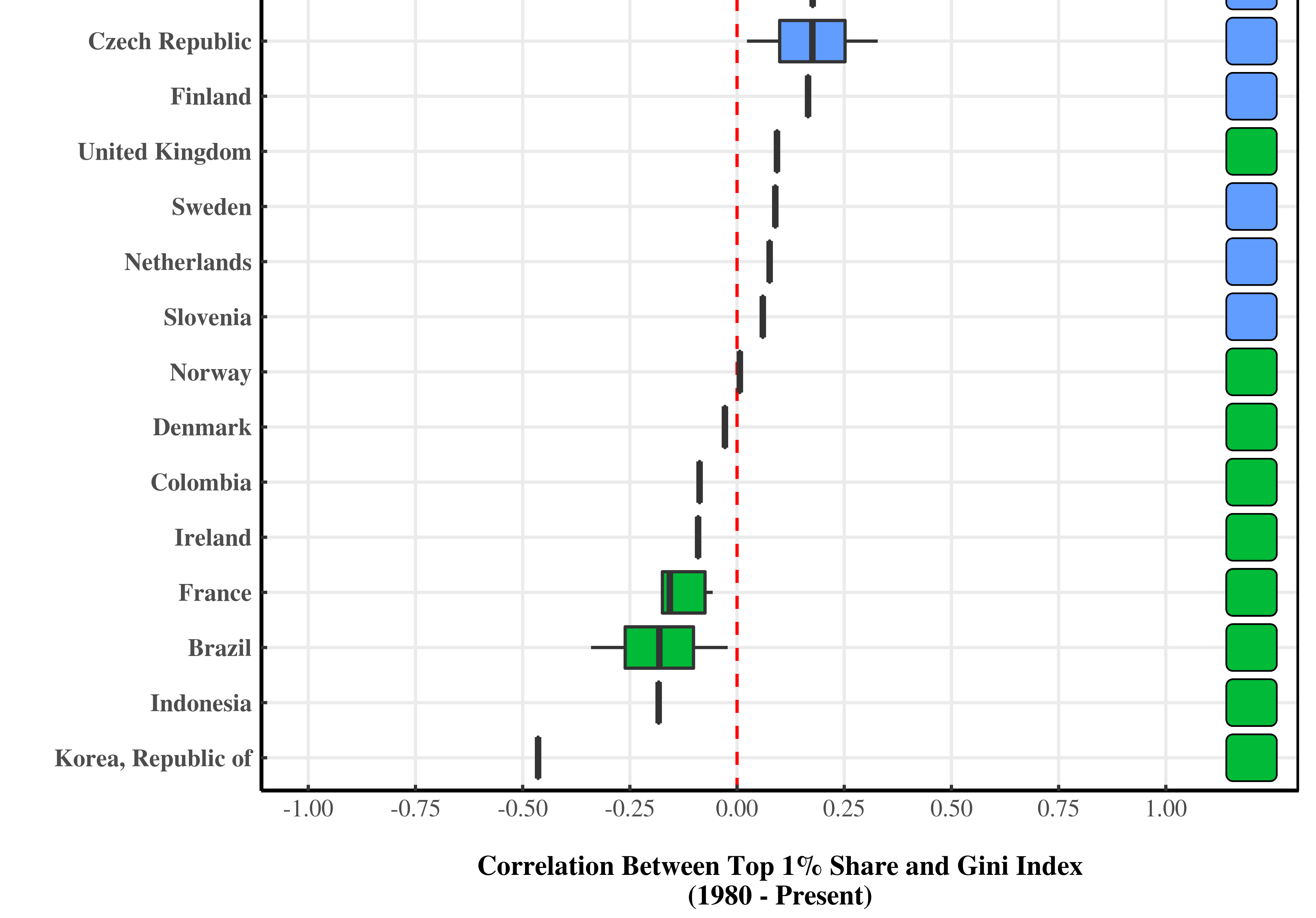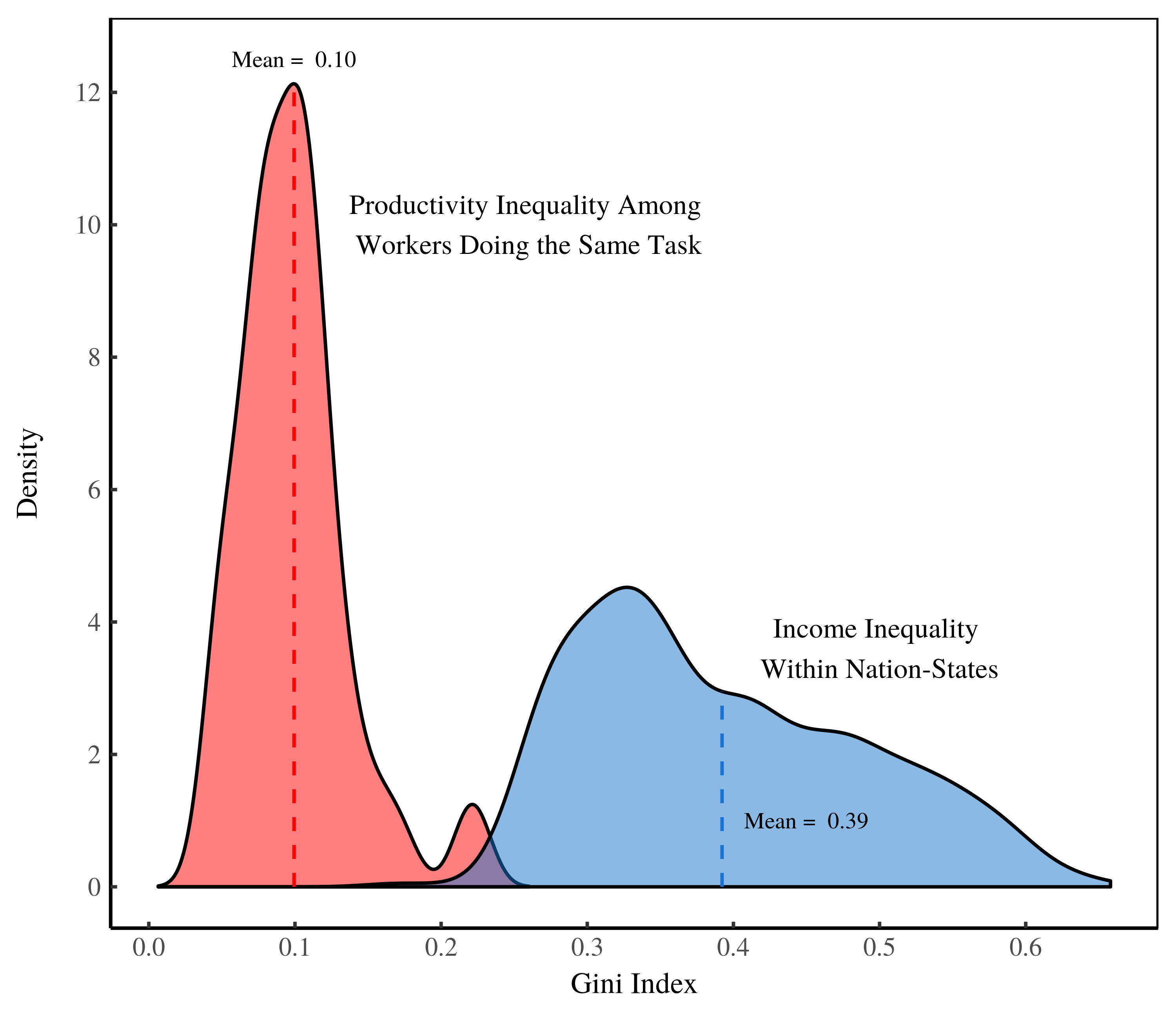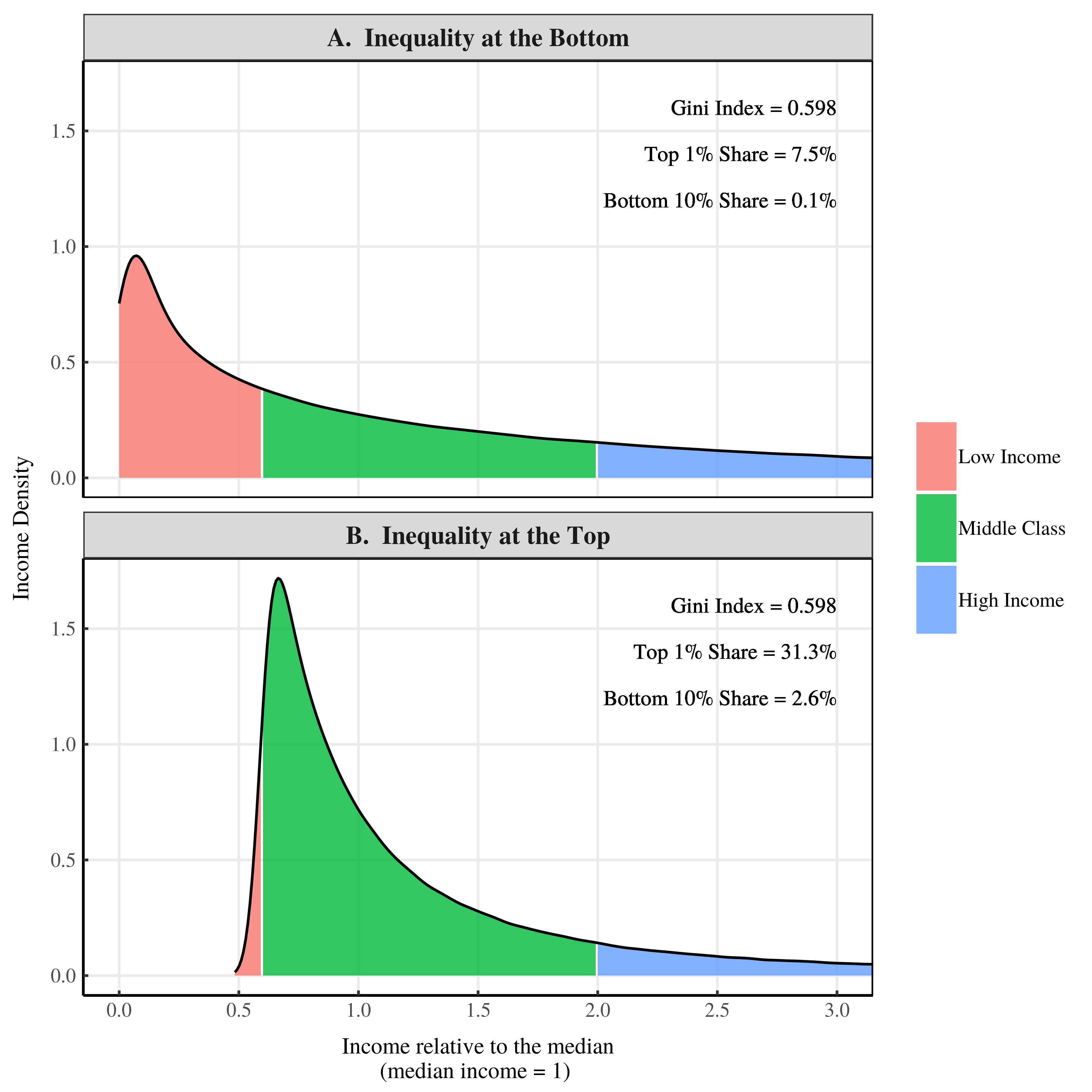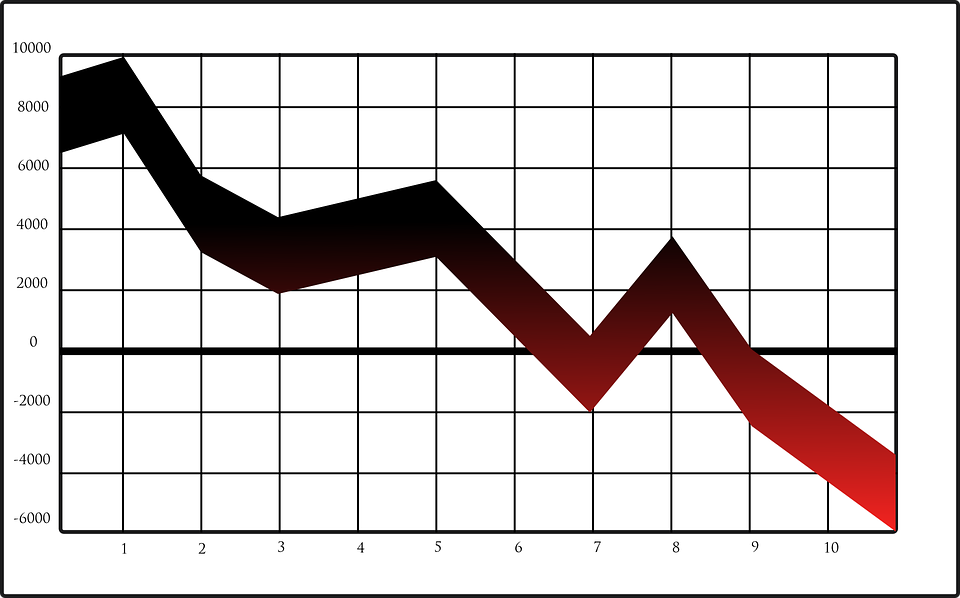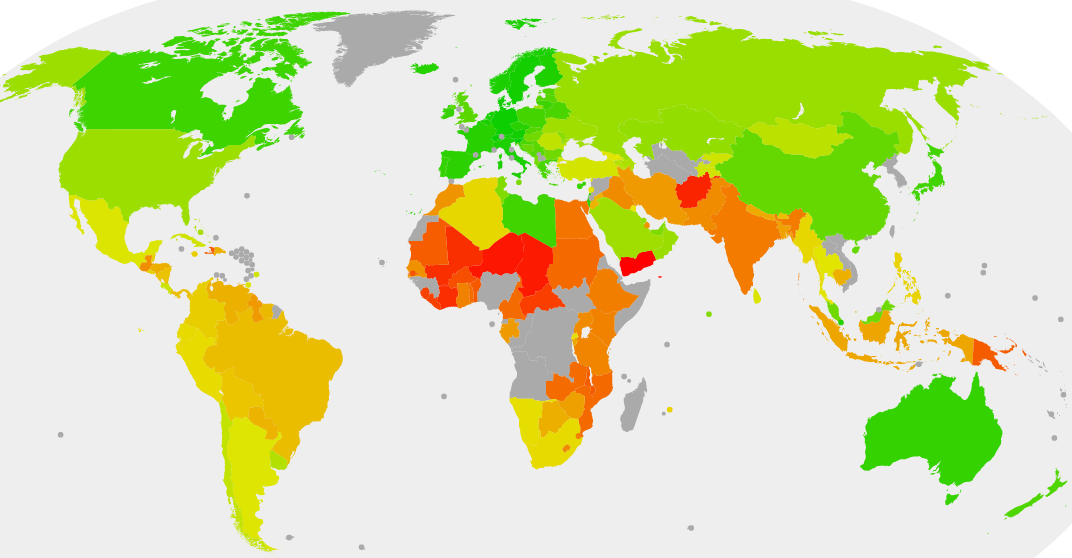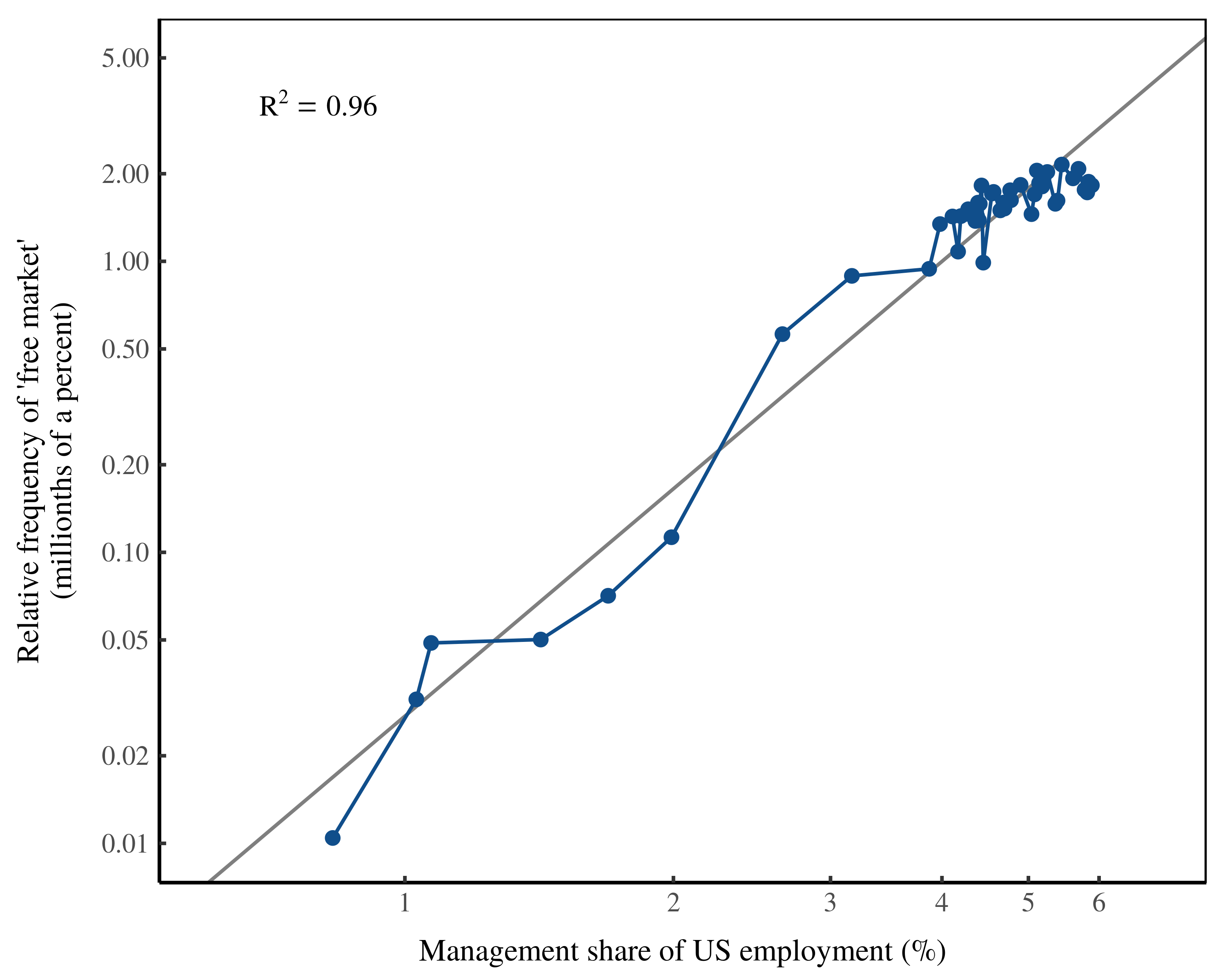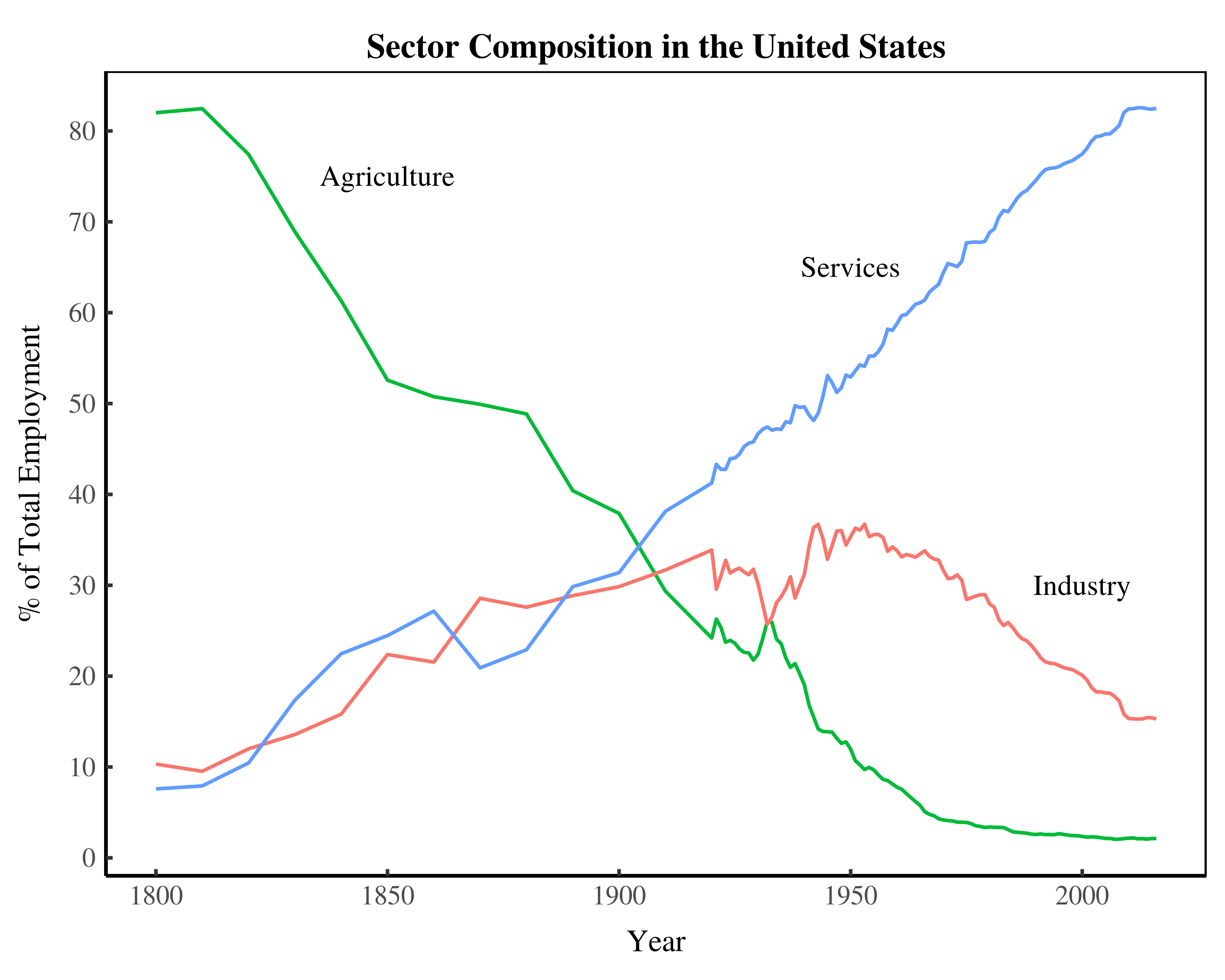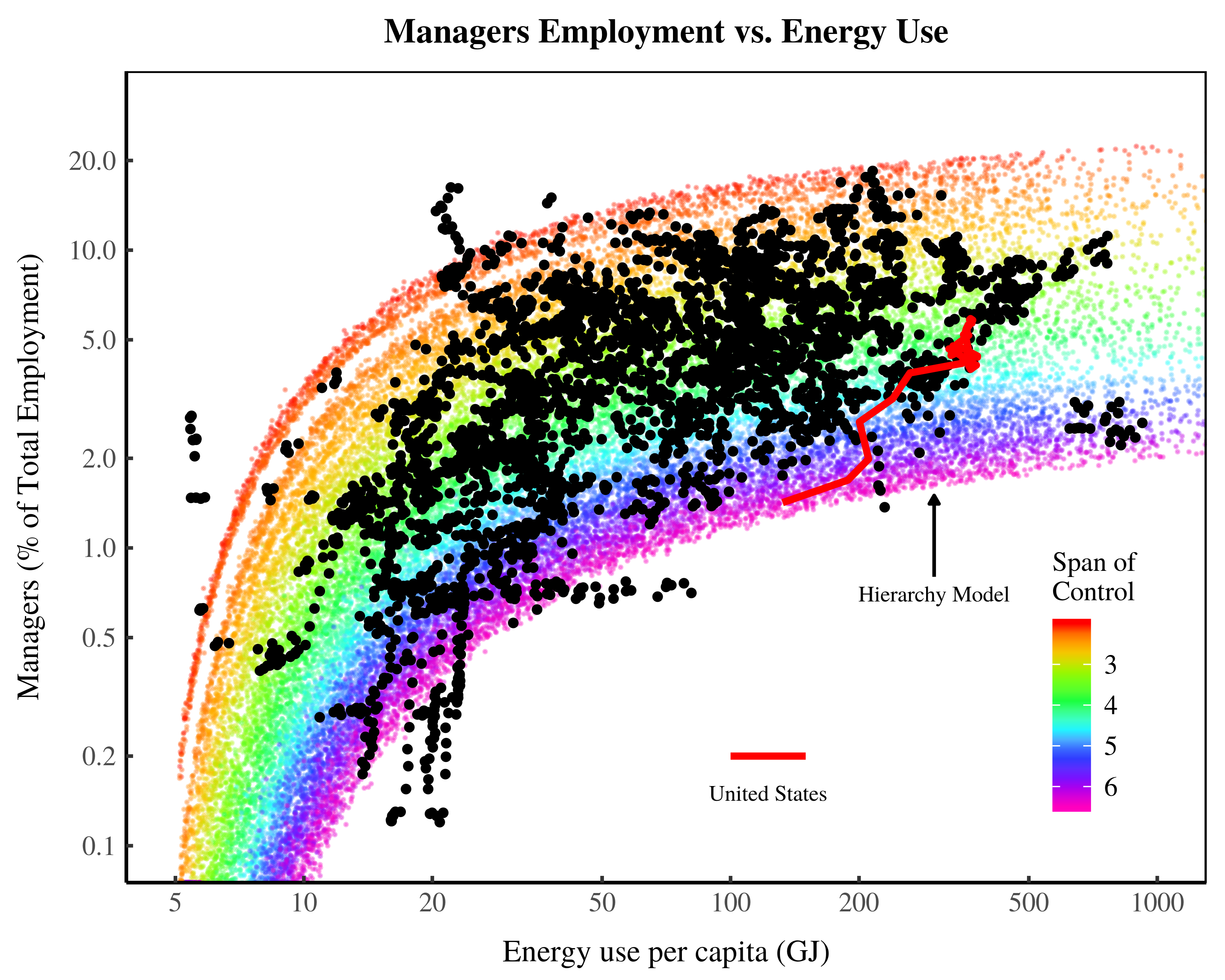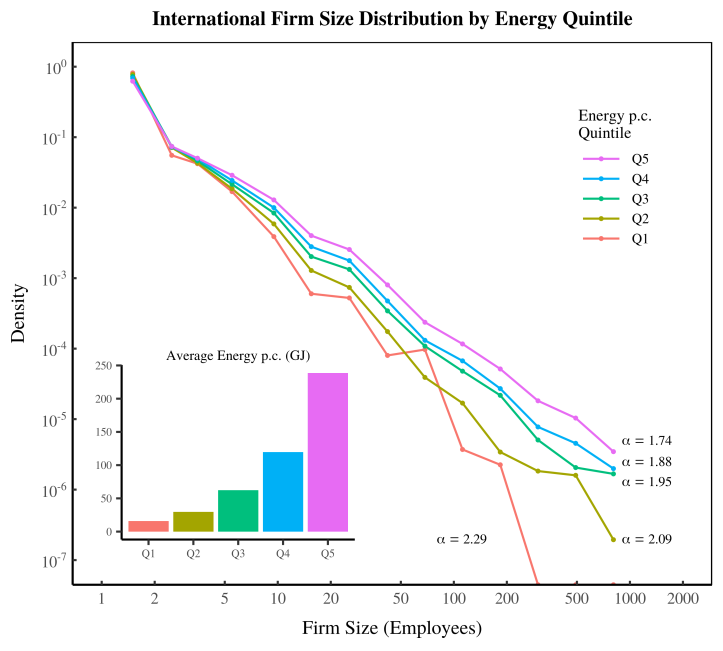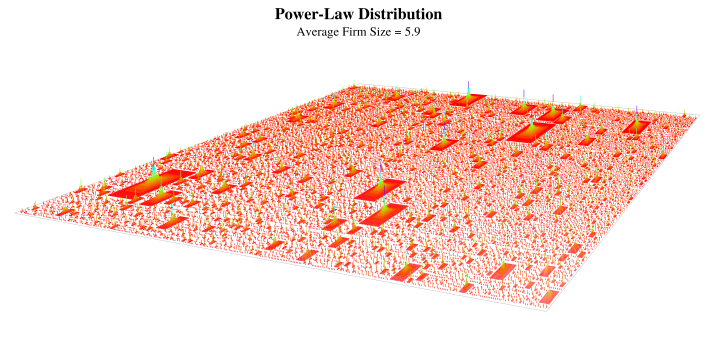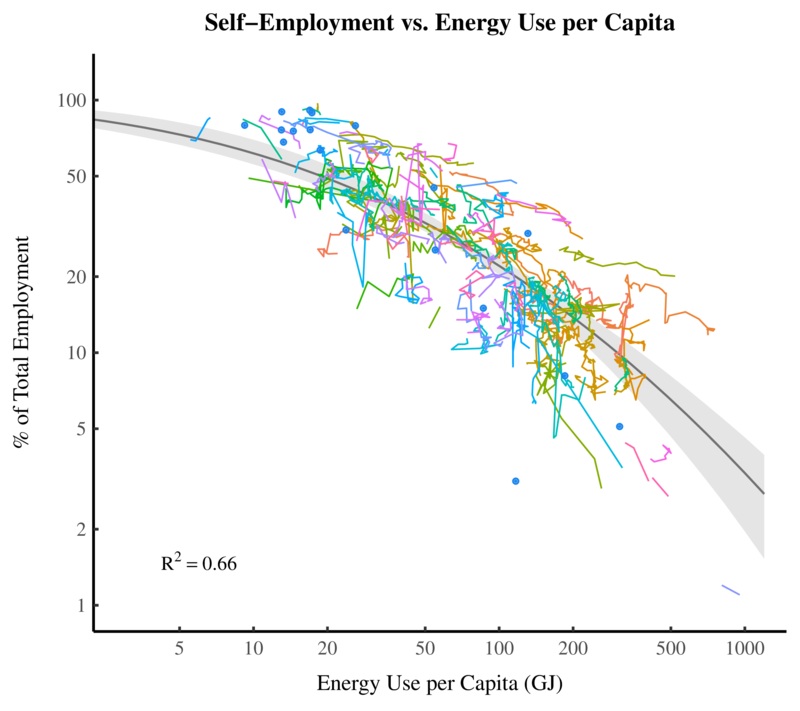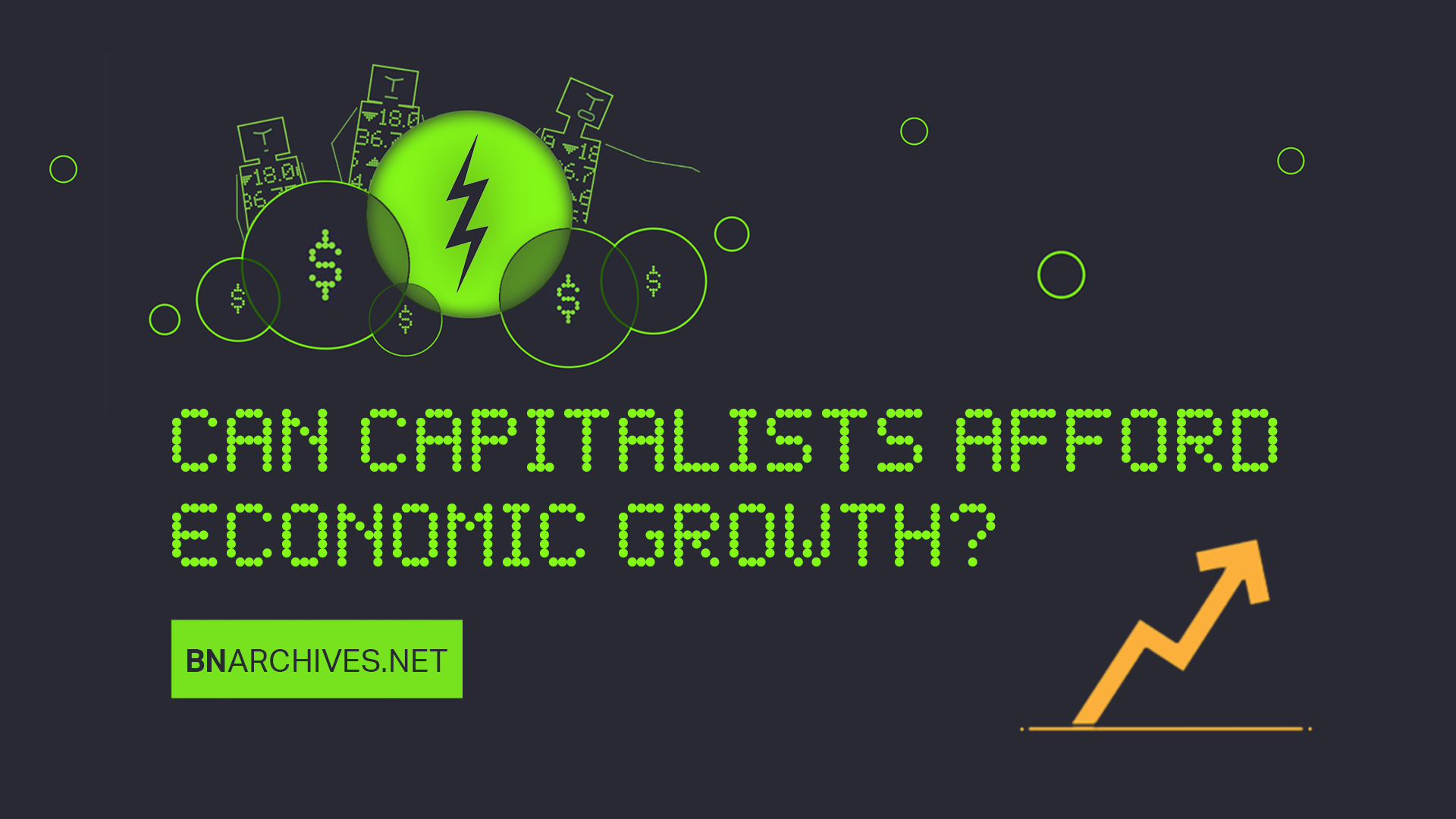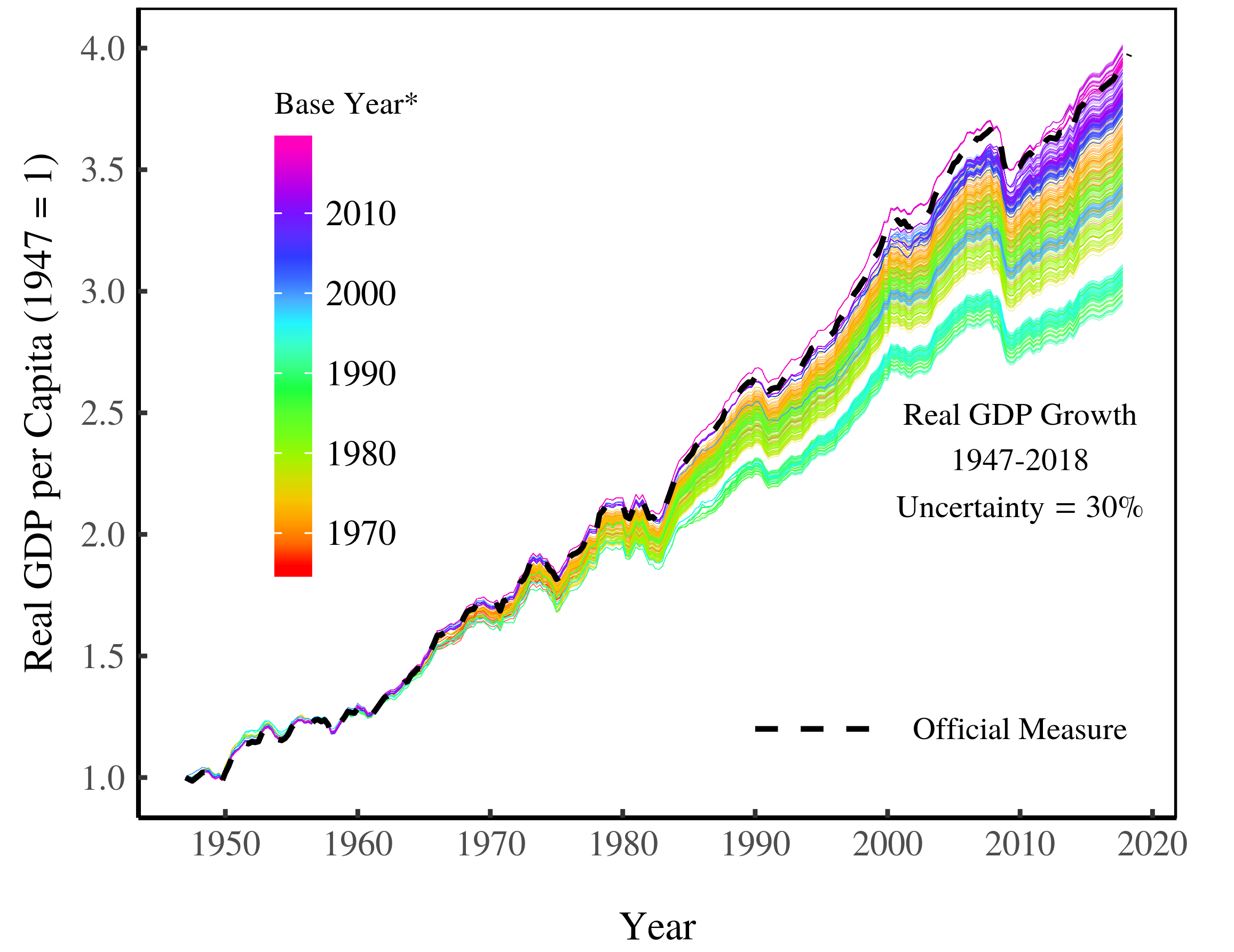Originally published on Economics from the Top Down Blair Fix If you ask the average person what ‘science’ is, they’ll probably answer something like ‘it’s what we know about the world’. To the lay person, ‘science’ is a body of facts. To the trained scientist, however, ‘science’ means something different. It’s not a body of […]
Continue ReadingA Reading List For Economic Heretics
Originally published on Economics from the Top Down Blair Fix Do you think that the discipline of economics is a sham — an ideology masquerading as science? If so, here is a reading list for you. These 10 books have influenced my thinking over the years. Read them and join me in the journey of […]
Continue ReadingWhen Inequality Increases and Decreases at the Same Time
Originally published on Economics from the Top Down Blair Fix In Problems With Measuring Inequality, I discussed how inequality is an ambiguous concept. The problem, in short, is that a single metric can never capture every aspect of a distribution of income. Much like we cannot tell the shape of an object from its perimeter […]
Continue ReadingNo, Productivity Does Not Explain Income
Originally published on Economics from the Top Down Blair Fix Did you hear the joke about the economists who tested their theory by defining it to be true? Oh, I forgot. It’s not a joke. It’s standard practice among mainstream economists. They propose that productivity explains income. And then they ‘test’ this idea by defining […]
Continue ReadingRethinking Causation in the Social Sciences
Originally published on Economics from the Top Down Blair Fix For the last few weeks, I’ve been thinking about causation in the social sciences. As with many instances of reflection, this was prompted by rejection. A political economy journal recently rejected a paper that I had submitted. The paper (available here) studied the correlation between […]
Continue ReadingProblems With Measuring Inequality
Originally published on Economics from the Top Down Blair Fix Economists often talk about income inequality the same way a doctor would talk about a child’s height. Just as a doctor would say “Sylvia continues to grow taller”, economists say things like “US income inequality continues to grow”. (Full disclosure, I’m sure I’ve said similar […]
Continue ReadingThe Legacy of Aaron Swartz: The Fight for Open Access
Originally published on Economics from the Top Down Blair Fix Over the past few weeks, I’ve been thinking a lot about Aaron Swartz. Swartz was an internet pioneer who, in his teens and early 20s, made huge contributions to computer culture. Among other things, Swartz helped develop RSS (which organizes web feeds), Markdown (a simple […]
Continue ReadingWhat If Scientific Impact Could Be Negative?
Originally published on Economics from the Top Down Blair Fix Scientists live and die by their scientific ‘impact’. For the uninitiated, ‘impact’ is a measure of a scientist’s contribution to their field. While there are many measures of scientific impact, almost all of them focus (in some way) on citations. So if more people cite […]
Continue ReadingAre We Measuring Inequality the Wrong Way?
Originally published on Economics from the Top Down Blair Fix In a recent blog post called “How Not to Measure Inequality”, the anthropologist Jason Hickel argues that economists measure inequality the wrong way. Hickel thinks that standard measures of inequality (such as the Gini index), underestimate global disparities. The problem, according to Hickel, is that […]
Continue ReadingThe Allure of Marxism … And Why It’s a Mistake
Originally published on Economics from the Top Down Blair Fix Karl Marx is probably the most important social scientist in history. But while his influence is beyond compare, Marx’s legacy is, in many ways, disastrous. Few thinkers have inspired so many people to commit crimes against humanity. Think of Stalinist gulags. Think of the Ukrainian […]
Continue ReadingAs it Dies, We Talk About the ‘Free Market’ More
Originally published on Economics from the Top Down Blair Fix In The Growth of Hierarchy and the Death of the Free Market, I argued that economic development involves killing the free market. What was the evidence? As energy use increases, so does the relative number of managers. This growth of managers, I argued, indicates that […]
Continue ReadingCan A Service Transition Save the Planet?
Originally published on Economics from the Top Down Blair Fix Let’s talk sustainability. Unless you’re an anti-science crank, you probably agree that we’ve got a problem with carbon emissions. We need to drastically cut emissions to avoid catastrophic climate change. On this we should all agree. The question that’s open for debate is how to […]
Continue ReadingWhere’s the Barefoot Revolution in Economics?
Originally published on Economics from the Top Down Blair Fix Yesterday I was reminded of what got me interested in economics. I’ll preface this by saying that I make my living as a substitute teacher in Toronto. It’s not glamorous, but it pays the bills. It gives me time to do research from outside academia. […]
Continue ReadingThe Growth of Hierarchy and the Death of the Free Market
Originally published on Economics from the Top Down Blair Fix Do you believe in free markets? Do you think that unfettered competition is the best way to organize society? If so, this post is intended to shake your faith. No, I’m not going to argue that free markets are bad. Instead, I’m going to show […]
Continue ReadingEnergy and the Size Distribution of Firms
Originally published on Economics from the Top Down Blair Fix In this post, I’m going to return to the relation between energy and institution size. When we left off last time (in Groping in the Dark), I had described my struggle to understand how the size of firms and governments changes with energy use. It […]
Continue ReadingVisualizing Power-Law Distributions
Originally published on Economics from the Top Down Blair Fix In this post we’re going to take a journey into the world of power-law distributions. Power laws pop up again and again in my research. But I’ve never taken the time to discuss what makes them so weird. This post will be a little ‘power-law […]
Continue ReadingAgent-Based Models and the Ghost in the Machine
Originally published on Economics from the Top Down Blair Fix In the opening post of this blog, I described my ‘top-down’ approach to studying society. This means studying groups of people without trying to reduce everything to the actions of individuals. It’s not that I think individual actions are unimportant. Of course they are important. […]
Continue ReadingGroping in the Dark: The Untold Side of Research
Originally published on Economics from the Top Down Blair Fix There is an exciting side of blogging that I want to explore here. Blogging can tell the story behind research. This is something you don’t get in journals. Most scientific articles obey a formula that goes like this: Here is the question I asked. Here […]
Continue ReadingVideo: Can Capitalists Afford Economic Growth? An Animation
Elvire Thouvenot has produced an animated video that summarizes the key points of Bichler and Nitzan’s 2014 paper “Can Capitalists Afford Recovery? Three Views on Economic Policy in Times of Crisis.” This paper was first printed in Review of Capital as Power. It was reprinted in Philosophers for Change. Watch the video below:
Continue ReadingReal GDP: The Flawed Metric at the Heart of Macroeconomics
Blair Fix, Jonathan Nitzan and Shimshon Bichler The study of economic growth is central to macroeconomics. More than anything else, macroeconomists are concerned with finding policies that encourage growth. And by ‘growth’, they mean the growth of real GDP. This measure has become so central to macroeconomics that few economists question its validity. Our intention […]
Continue Reading
